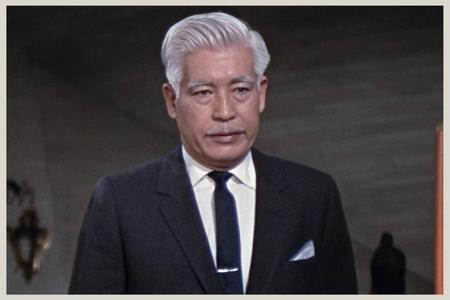Teru Shimada Biography

Teru Shimada was a Japanese-American actor born on November 17, 1905, in Mito, Ibaraki Prefecture, Japan. He was a Nikkeijin (first-generation Japanese-American) who emigrated to the United States in the early 1930s to follow in the footsteps of his idol, Sessue Hayakawa.
Teru Shimada’s childhood was spent hearing tales of entertainers who would visit his artist grandfather’s home. He idolized Tom Mix, a cowboy star, and after seeing Sessue Hayakawa in a Hollywood film, he decided to emigrate to the United States to become an actor. Teru Shimada arrived in San Francisco in March 1924 on a student visa, knowing no English. Although he eventually attended two years of college, he remained determined to become an actor and worked odd jobs to support himself while taking acting lessons.
Shimada’s first professional acting role was in a Los Angeles production of Hale Hamilton’s play Dear Me in 1929. He enrolled in acting courses and performed in a student production of The Flower of Edo, a one-act play about Japan. In June 1931, Teru Shimada headlined a class show in Los Angeles’s Jinnistan Grotto theater, performing scenes from Melchior Lengyel’s play The Typhoon. He secured his first film role in The Night Club Lady in 1932.
After World War II broke out, Teru Shimada was taken by surprise by Executive Order 9066 and the mass removal of Japanese Americans. He was sent to the Poston War Relocation Center in May 1942. In camp, he was named the production manager of a Nisei drama group, the Poston Drama Guild. The group performed in mess halls and put on skits and comic sketches of camp life, including Coming to Boilton and The Blockhead’s Nightmare.
After being released from internment at Poston War Relocation Center, Shimada was cast in a war propaganda film but the project was cancelled once the war ended. He then received a telegram from Paul Wilkins, a former casting director at MGM, who brought him back to Hollywood.
However, Shimada was unable to find work and decided to move to New York to pursue his career. He was eventually cast in a play called The First Wife, where he played a young Chinese man named Yuan. To conceal his Japanese origins, Teru Shimada was billed under a Chinese-sounding name, “Shi Ma-Da.” The play was successful and he joined the production for an extended tour of the United States, receiving positive reviews for his performance.
He won a part in Tokyo Joe, and though his role was originally small, Shimada’s performance led to him having increasingly more to do in the film. Shimada’s performance in Tokyo Joe led to a revival of his career in Hollywood during the 1950s.
He was cast as a brutal Japanese officer in Three Came Home, a villainous captain of a Chinese junk in Smuggler’s Island, and the uncle of Yoshiko Yamaguchi’s lead character in House of Bamboo.
During the 1960s, Teru Shimada worked mainly in television guest spots, including one in the adventure series Journey to the Center of the Earth, which he found difficult due to his trouble pronouncing English words, and the show’s producer, Irwin Allen, berated him on set.
Teru Shimada had a few film roles, including a small part in James Clavell’s drama The Sweet and the Bitter and a supporting role as a Japanese landlord in the 1966 drama Walk, Don’t Run. He also played the narrator in the documentary My Garden Japan and was also cast in the Batman movie in 1966.
In early 1967, Shimada was cast as Mr. Osato in the James Bond film You Only Live Twice. Shimada acted the role with relish, playing the suave Osato, an independently wealthy and well-respected Japanese businessman who is in fact a front for the international crime syndicate SPECTRE.
During his later years, Shimada made numerous appearances on popular television series such as Mannix, The Doris Day Show, and The Six Million Dollar Man. He also played a notable role in Hawaii Five-O as Mr. Shigato, a wealthy Japanese businessman accused of extreme cruelty toward three former prisoners of war.
Despite his successful acting career, Teru Shimada never married and listed Anna Snyder as his “next-of-kin” on his draft card. He became a naturalized U.S. citizen in 1954 and began receiving Social Security in 1970. Teru Shimada passed away on June 19, 1988, at his home in Encino, California.



